With challenges like excess packaging, questionable chemicals, and animal testing, you might wonder whether skincare can ever actually be sustainable. But slow as its evolution may be, the beauty industry has come along way to get to a point where refillable skincare is even an option. Organizations like Environmental Working Group and EcoCert have long advocated for healthier, more sustainable production in personal care products, and consumer demand has helped shaped the way brands develop and present their goods. That said, I think most of us can agree, there remains too few brands offering both nontoxic and environmentally responsible skincare products. The clean beauty brands below are looking to change that with refillable skincare.
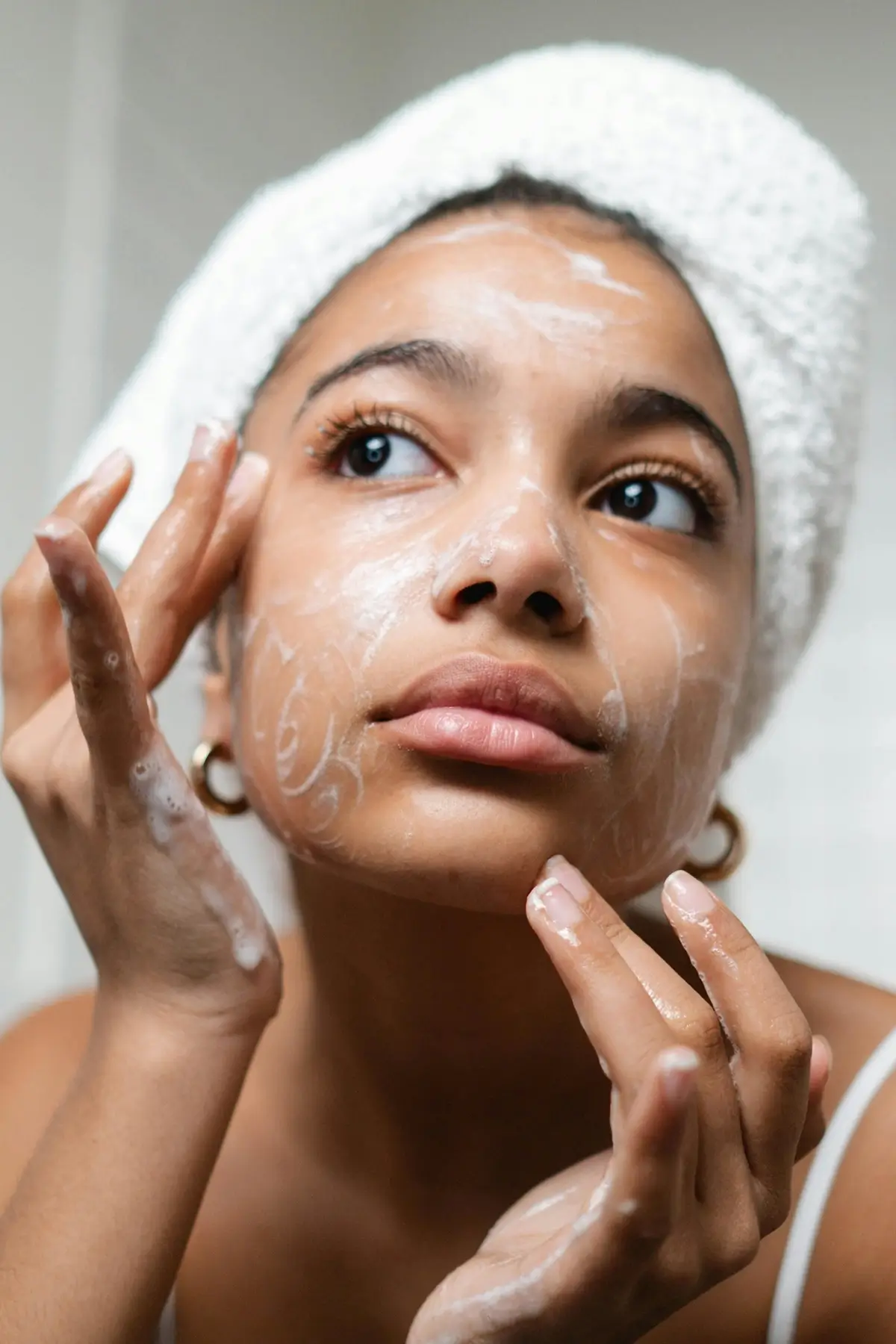
What Is Refillable Skincare?
Refillable skincare products are those that allow you to reuse the packaging you purchased your first product in. The intention is to reduce packaging waste, and sometimes reduce the carbon emissions produced along the way, while allowing you to continue buying your favorite cleansers, moisturizers, and serums as often as you need them. It’s kind of a win-win for both brands and consumers, because it helps consumers reduce waste while still, well, consuming.
For skincare companies, there is a lot to think about when developing refillable packaging. Because unless you take your own container to a local bulk refill shop and add product like a lotion or body wash directly to it, weigh it, and buy it, you have to generate some amount of single use packaging to refill that initial container. How else would the product get to you? So to get follow up products to consumers, brands have to choose a different container that is significantly more sustainable than simply sending another of the first.
(Not to mention, the box or mailer that product needs to ship in, I’m getting a headache already.)
This can be tricky. Different materials have varying degrees of “sustainability”. For example, glass on its own is a more eco-friendly option than plastic, but it’s heavier. When you factor in the carbon footprint of transporting glass versus plastic, the balance shifts. When it comes to refillable skincare, brands need to consider two types of packaging, not just one: the containers you’ll save, and the ones you’ll get your refills in. Nothing can be easy, can it?
There’s also ingredients to consider: freshness and safety of product when in transport and when in your cabinet, what ingredients are used, and how they need to be stored to remain their best.
So, which brands have taken on the complicated challenge of reducing waste through refillable products? Here are 7 clean beauty brands we’ve found, and what we learned about how they make it happen.
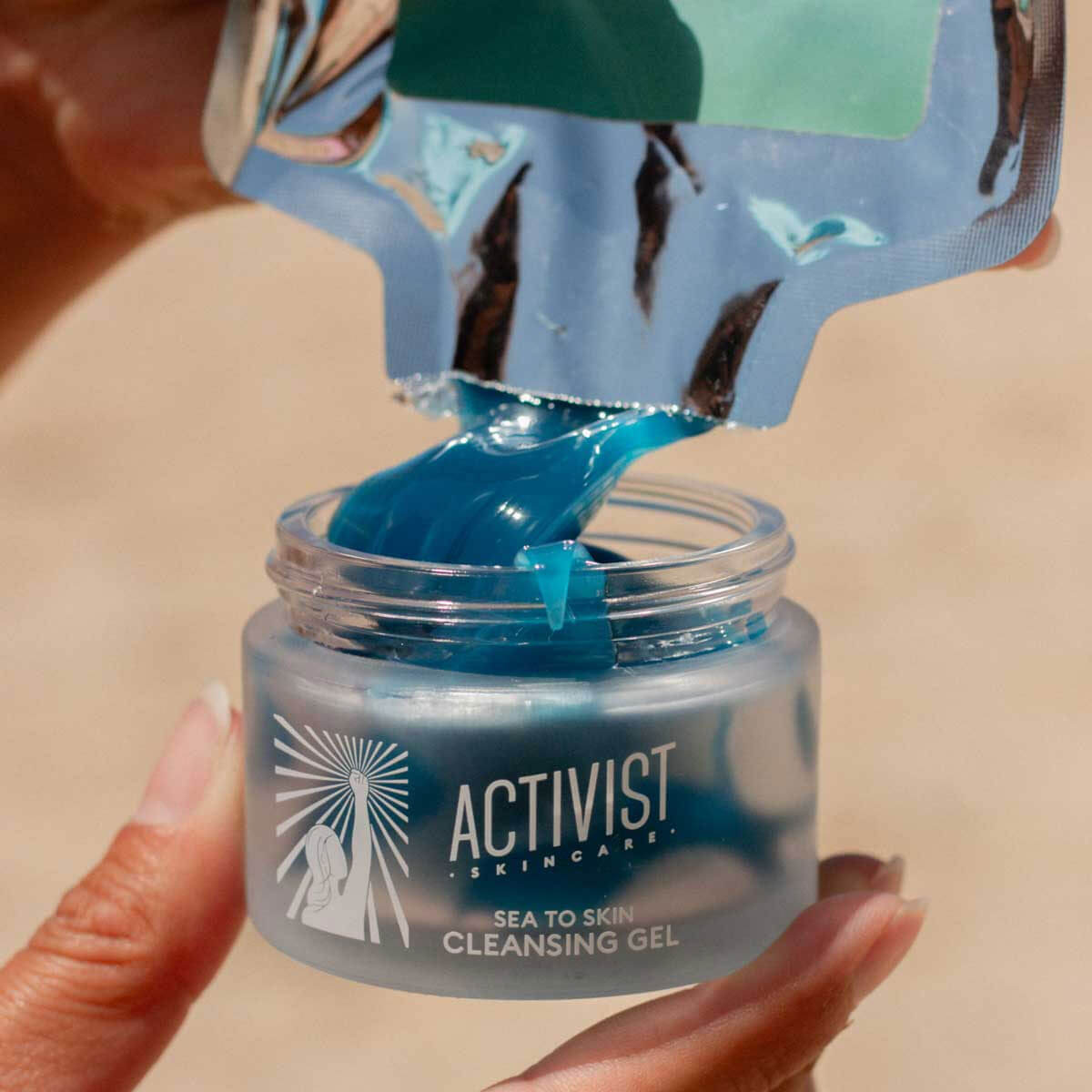
6 Refillable Skincare Brands To Know
Disclosure: Affiliate links are used when possible below, to help us keep our website running at no additional cost to you. We are not promoting any one product here, but sharing options based on our research so far!
Activist Skincare
Activist Skincare is Earth’s first refillable skincare brand, and the one who taught us that refillable is possible. (Find them in our directory here.) This brand is unique in a few ways. First, everything they offer is available in refills. For a lot of brands testing the waters with refillable skincare, they only offer a couple primary products to be refilled (I love Follain, for example, but it’s their soap, not moisturizer, that’s available this way). Secondly, Activist owner Allison has made it her mission to provide the cleanest, greenest skincare on the planet. (Think of that if anyone ever tells you your dreams are too lofty.) In developing her line, she did not stop at green or nontoxic or effective or vegan or refillable: it had to be all. And it is.
How refills work: Your first product arrives in recyclable glass containers. Allison knows that only 27% of glass containers actually get recycled (and that’s the part that’s actually recyclable—their pumps and sprayers are a whole different problem), which is why she is adamant about your container being reusable, not single use. Refills come in lightweight plastic refill packages, which Activist has deemed the more sustainable option (learn more about why here). They are recyclable with TerraCycle, and Allison is actively working on a compostable option.
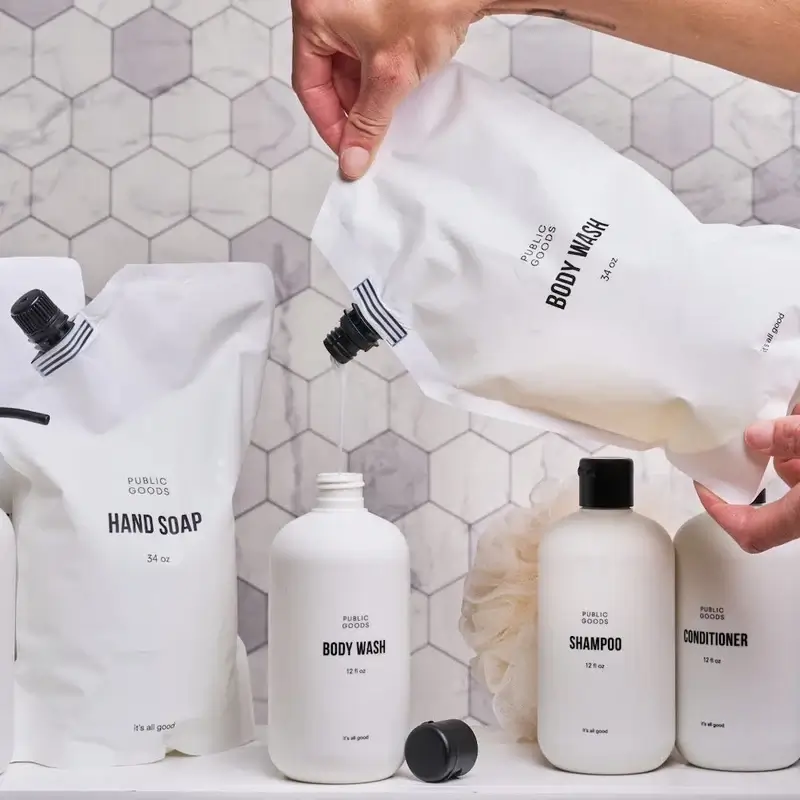
Public Goods
Public Goods is a personal and home care brand that provides nontoxic and sustainable options to essentials like cleaning, laundry, hair, and skincare products. 34-ounce refills are offered in body wash, lotion, shampoo and conditioner, as well as some cleaning products. They can also be purchased in bundles which save money and cut down on shipping. They’re not currently offered in smaller products like serum and eye cream. Packaging from products and their refills is made of bioplastics or bamboo (though I cannot find substantial information about this on their website regarding how much if it is made with these materials).
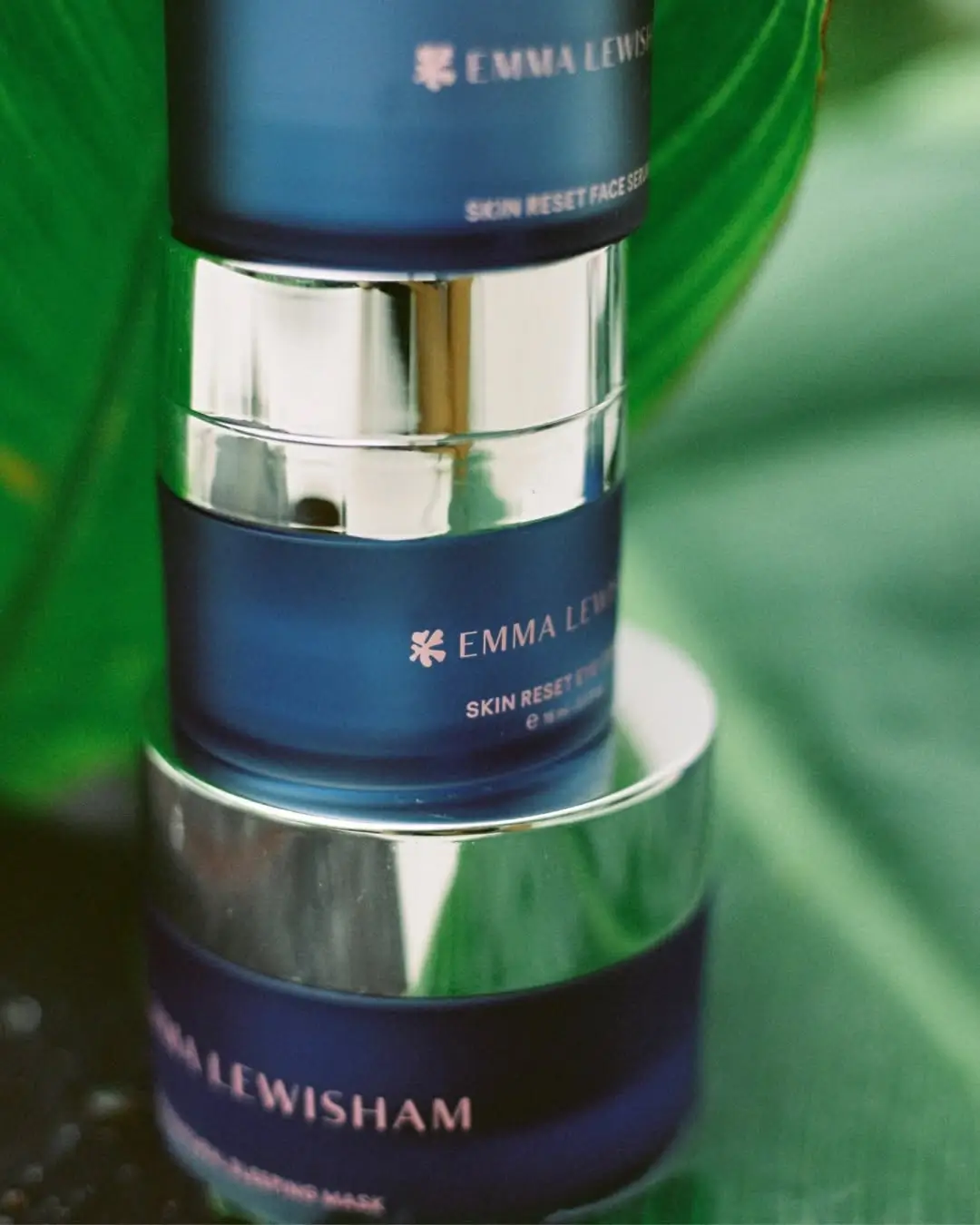
Emma Lewsham
Based in New Zealand, Emma Lewsham‘s entire line of clinical-grade skincare is offered in refills, reducing carbon emissions by up to 74%. They’re the first Climate Positive certified skincare brand, and even the late, great, environmental hero Dr. Jane Goodall has given them a shoutout. Their refill program is available worldwide (it goes without saying you may want to consider the distance it has to travel if considering sustainability here), which encourages consumers to send back their empty refill pods for reuse (those in Australia can return them in stores locally).
Refills are offered in everything from sunscreen to face creams to masks and more.
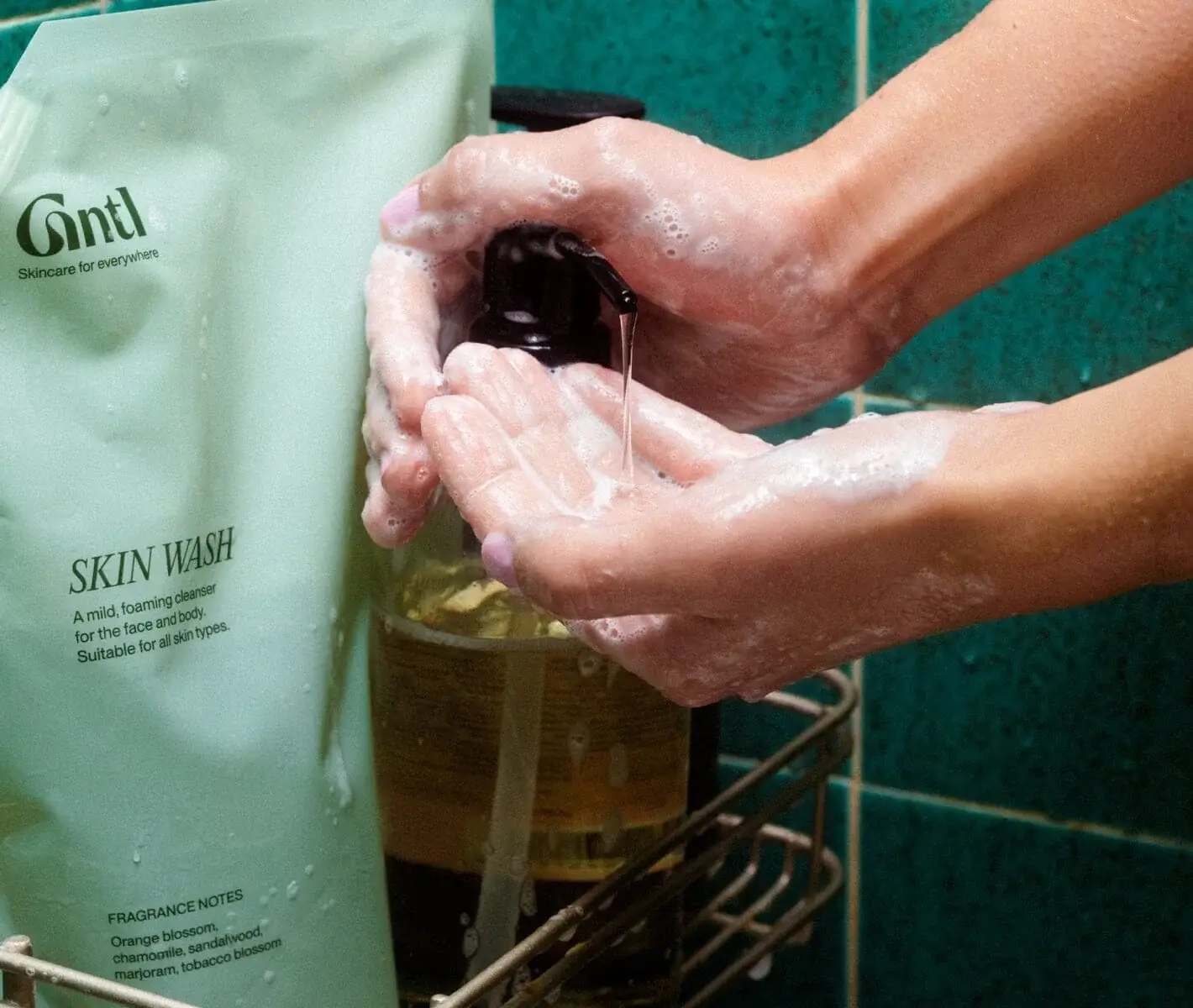
GNTL
Gntl leads the way in the skinimalism movement by offering only two products: their refillable Skin Wash, a multi-use cleanser for face and body (also touted as makeup remover and shower gel), and their Japan-made moisturizer Skin Emulsion. The company worked with Better Future Factory on sustainable packaging, and landed on a 33 ounce cleanser refill pouch that can be recycled. The moisturizer comes in an aluminum tube. These sustainability practices are far better than many conventional skincare brands, but the real benefit comes in its multi-use product that supposedly reduces the need for consumers to purchase separate products (and packaging) from other retailers. Gntl products also meet EU clean standards, which are stricter than those in the US.
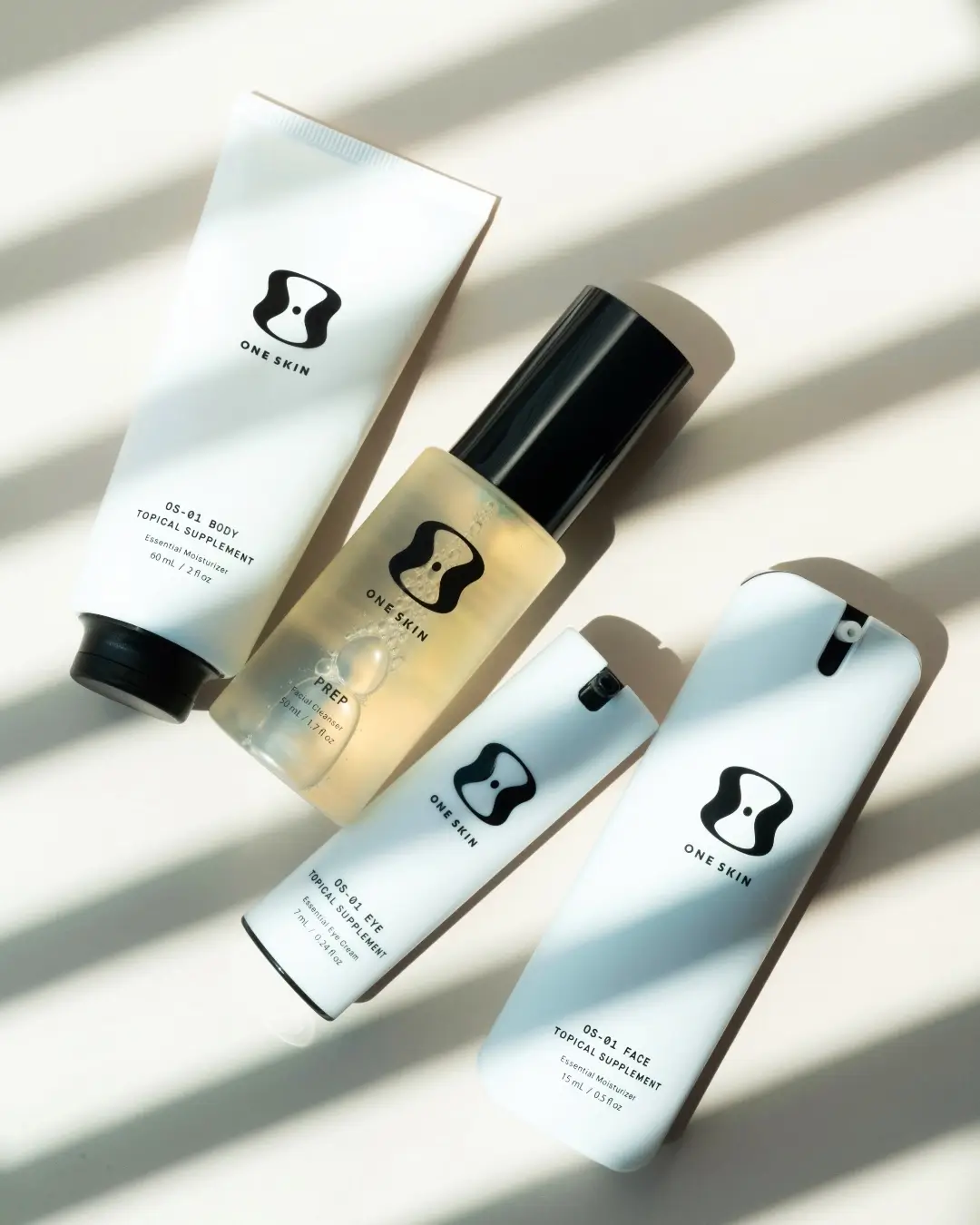
OneSkin
Full disclosure: this brand sent Eco Club products to try out earlier this year. So far I love the creams (let me know if you’d like to see a full OneSkin review down the road), but haven’t used them consistently enough to speak to their claims about skin longevity yet. But I can tell you about their packaging.
Doctor and scientist founded skincare brand OneSkin has developed the first ingredient deemed scientifically proven to reverse skin’s biological age with their OS-01 Peptide. OneSkin is Reef Friendly and Leaping Bunny Certified. They are Certified Plastic Neutral, which means they work with organizations to remove plastic waste from the environment for every amount plastic they use in their products (similar to carbon offsetting). It’s a positive step for companies that use plastic, though sustainability advocates would obviously prefer not to use it at all. (Here’s an interesting article from Sierra Club on the certification on its pros and cons). Their packaging encourages reuse of their original containers, which are then refilled with single-use cartridges that contain far less plastic and are lighter to ship. On their site you’ll find topical skin supplements, cleansers, masks, SPF and more.
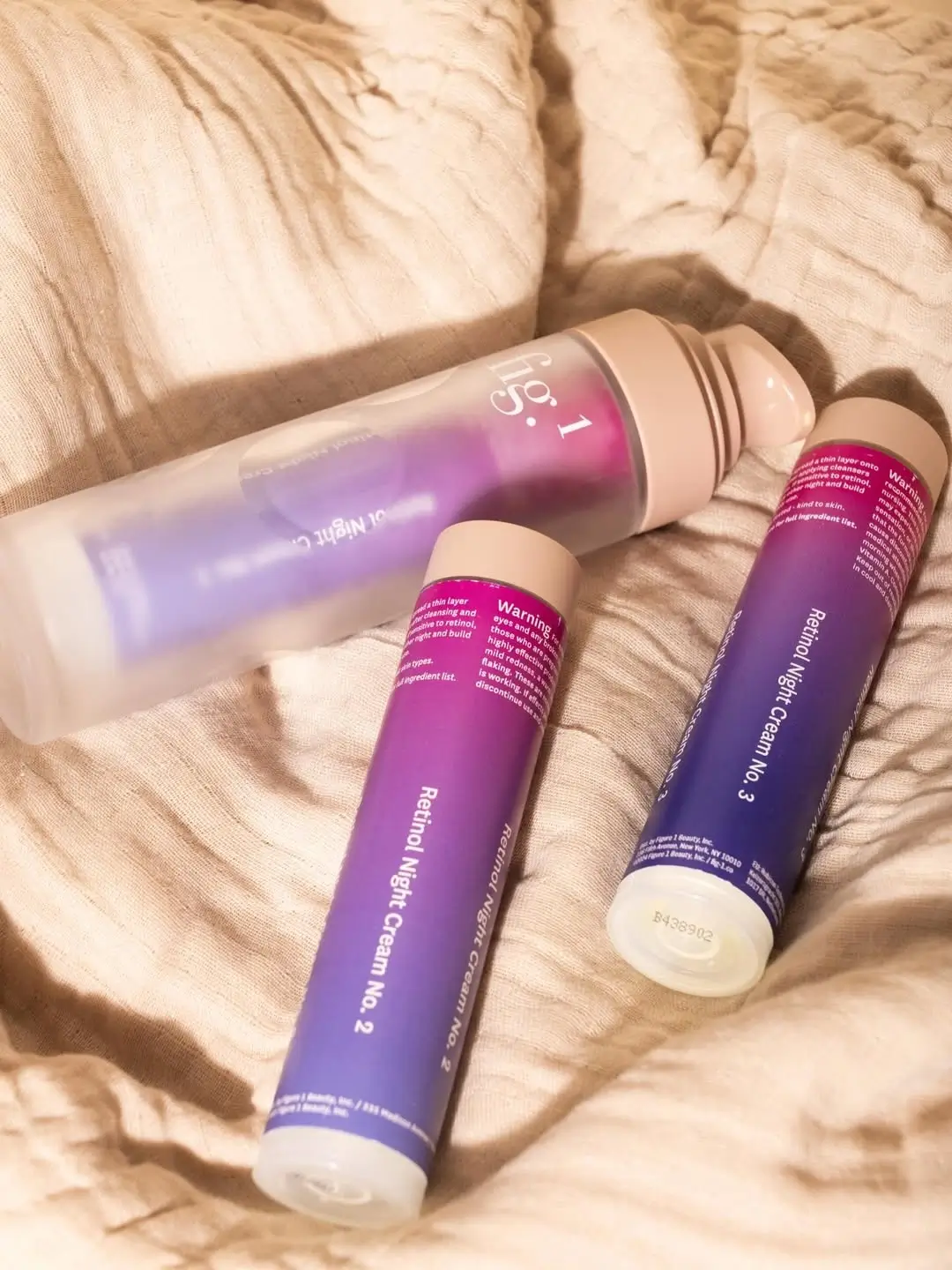
Doctor and dermatologist backed Fig.1 is known for their Retinol products, a collection of clinically-proven fragrance-free creams that are first shipped in glass bottles with plastic tops that are then kept along with the pumps and refilled with smaller cartridges. In addition to refillable skincare, the brand also offers dissolvable cleansing wipes in partnership with Conserving Beauty.
Note: I’m struggling to find out how much of their packaging is glass vs. plastic. Here’s what I’ve found so far, and hopefully I can come back and update this post soon!
What do you think?
Is the refillable skincare movement the next big thing? With all of the shipping back and forth that goes into it, can it ever be the solution? Would you rather purchase from a brand that offers refills that use plastic, or one that’s not refillable, but uses biodegradable containers? In my opinion, it truly depends on the product: How long does it last? Is it effective enough that I will actually refill it? Am I choosing to refill it over buying and trying other products, or do I still shop just as much? What else is the brand doing to lessen their impact? As always, there is so much—way too much—to consider. But still, we try!
your two cents